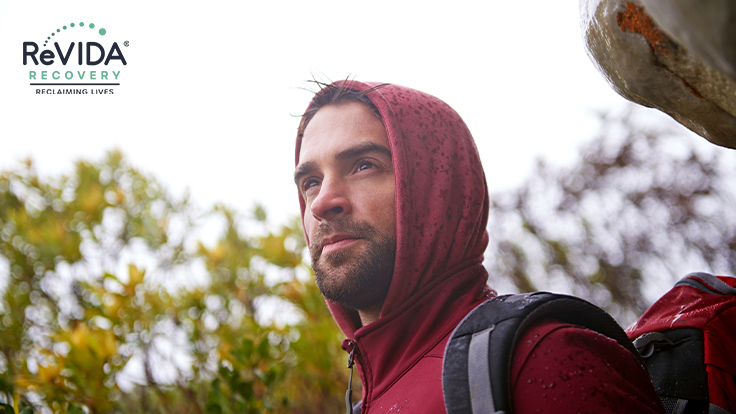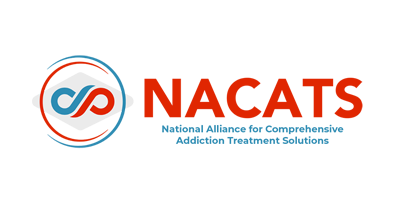
She was not heroin. He was not morphine. They were not codeine. She was a mother. He was a brother. They were friends and family members.
Those we have lost to an opioid overdose were not a problem, they were people. They had names, faces, lives, and people who cared. They live on in memories and help spread awareness of this grave condition – opioid use disorder.
In 2022, over 3,000 Tennessee residents lost their lives to an opioid overdose. This does not include how many experienced an overdose and survived. At ReVIDA® Recovery, we understand how overdoses impact our communities, tearing families and loved ones apart. Our program combines different therapies with Suboxone treatment to provide hope and healing to those living with an opioid use disorder.
What happens during an opioid overdose? How can we help someone who is having one?
Table of Contents
What Is an Opioid Overdose?
Opioids are substances that derive from the opium poppy plant. Some are natural such as morphine or codeine, while others are semi-synthetic (oxycodone) or fully synthetic (fentanyl). No matter how they are produced, all opioids can cause an overdose. An opioid overdose occurs when someone takes too much of any form and the body can no longer continue processing it, causing it to build up and begin shutting systems down. Opioid overdoses are a medical emergency and need to be addressed immediately as they are life-threatening.
Risk Factors for Opioid Overdose: Can It Happen to Anyone?
The thing about opioids is they do not look at you and say “You can take five doses of me, I won’t let you overdose.” In other words, anyone can experience an opioid overdose no matter how long they have been taking them and how much. However, there are certain factors that can increase the risk of overdose, including:
- Return to use – if you have stopped taking opioids for a short time and experienced withdrawal, your tolerance is no longer what it used to be. Returning to use and taking the same amount you were before can result in an overdose
- Mixing substances – taking other substances with opioids increases the risk of an overdose. This includes alcohol or other depressants as they can slow the respiratory system further, as well as stimulants because they can mask the effects of opioids causing you to take more
- Age – those 18-25 and those over 65 are susceptible to opioid misuse and opioid sensitivity, which increases the risk of an overdose
- Underlying medical conditions – those who already have a respiratory condition such as asthma, COPD, and sleep apnea are at an increased risk of experiencing an overdose
Spotting the Signs and Symptoms of Opioid Overdose
Opioid overdoses have some distinct signs compared to other substances. One of the most common is the “death rattle,” which is the sound of choking or snore-like gurgling coming from the person’s mouth and chest. Breathing is shallow, erratic, and sometimes has already stopped. This is a surefire sign that an opioid overdose is happening. Other symptoms of opioid overdose include:
- Bluish tint to the lips and fingertips on lighter-skinned people, gray or ash tint on darker-skinned people
- Confusion
- Loss of consciousness
- Small, pinpoint pupils
- Erratic heart rate
- Respiratory failure
Effects on the Body During an Opioid Overdose
During an overdose, the body experiences many complications that are life-threatening. Our bodies breathe naturally without thought, making it an involuntary process. Opioids work in the brain by decreasing the rate of involuntary respirations, leading to a condition called hypoxia. Hypoxia refers to having too little oxygen in the bloodstream to allow tissues to function. On top of this, because oxygen is lacking in the blood, carbon dioxide builds up, known as hypercarbia. The longer the person is left experiencing hypercarbia and hypoxia together, the risk of permanent organ damage and death increases tenfold.
After Opioid Overdose: The Effects on the Body and Mind
The after-effects of a survived opioid overdose can be just as detrimental to the body and mind as the act itself. One of the biggest risks of opioid overdose is experiencing toxic brain injury. This happens when the brain is poisoned by chemicals or toxins and does not receive adequate oxygen. It can also happen from the brain being completely cut off from oxygen, like when breathing stops. It only takes four minutes for the brain to begin losing cells during this time, leading to damage. We only have one brain, and when the cells die, they do not regenerate. Toxic brain injury can be permanent and cause life-long side effects.
The liver and heart may also be compromised after an overdose. The liver works to detoxify our bodies from substances, and being overwhelmed with opioids – especially opioids containing acetaminophen – can cause damage. When the liver is not functioning properly, toxins can build up in the body causing more health concerns. The heart can also experience damage from an overdose, including an irregular heartbeat known as an arrhythmia. Arrhythmias can be temporary or permanent, increasing the risk of stroke and heart attack.
Lastly, the mental health effects after an overdose can be just as severe as the physical. Depression, anxiety, guilt, shame, irritability, and emotional pain are all common after an overdose. The person may feel down and guilty at first for experiencing the overdose in the first place. They may be irritable and anxious at the same time wondering where their next dose will come from. This is because, after an overdose, the person will be experiencing intense withdrawal symptoms, especially if they were revived with Narcan® (naloxone). They will feel nauseous and have flu-like symptoms including pain, which are unpleasant.
Hospitals in the Johnson City area and other cities in Appalachia are working to have the option to give medication to help with withdrawal in order to get more patients into a treatment program instead of turning them to the street with no assistance. This helps prevent future opioid overdoses.
What to Do if Someone Is Overdosing on Opioids
If you know someone is experiencing an opioid overdose, call for help immediately. Get them to a quiet place away from any commotion. Prop them upright to avoid choking in case they vomit. If available, administer Narcan® (naloxone). This will help reverse the effects of the opioids and restart breathing. When help arrives, be honest about the situation and if you know what the person took and when. You don’t have to be afraid to disclose that information. This will help the medics provide the best treatment for the person.
Using Narcan® (Naloxone)
Narcan® (naloxone) is relatively easy to use. The nasal spray form is similar to over-the-counter allergy spray. Open the package and insert the tip into the person’s nostril. Push down on each side of the plunger to spray the Narcan® (naloxone) into the nose. Only one dose is in each spray, and if one dose does not work, give another dose if available. There are courses available in Tennessee that train you on how to administer Narcan® (naloxone) and provide free kits.
Preventing Opioid Overdose: What Can You Do?
The best way to prevent an opioid overdose is to stop taking opioids. However, this can be easier said than done. If you find you can’t stop right now, take precautions to protect yourself. Always carry Narcan® (naloxone) on you. Don’t take opioids alone, it is safer to have other people around in case something happens. If you have a close and trusted friend or family member, have their number in an easy-to-find place in case you need help and no one is around.
Getting Help for Opioid Use Disorder in Appalachia
Opioid overdoses are dangerous, and too many have lost their lives to this unforeseen event. Opioids can take hold of everything in life, becoming the center focus over your family, career, and health. However, there are options readily available to treat opioid use disorders and give hope for a brighter future. Opioid addiction treatment involves therapy and treatment with Suboxone to provide relief from cravings while addressing the root causes of addiction. Breaking free from opioids is possible, and finding your success in recovery will be the most rewarding experience.
If you or someone you love is managing an opioid use disorder, don’t wait for an overdose to think about help. ReVIDA® Recovery has helped many begin again and find success away from opioids. Our program welcomes everyone from all backgrounds and is easily accessible throughout Tennessee and Virginia. Call us today at 423-631-0432 to get started with a same-day appointment.
Reclaim your life.











